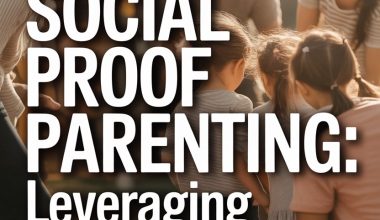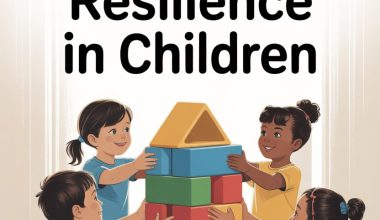Ah, siblings. Built-in best friends, built-in worst enemies, and built-in live-in debate partners over the last packet of crisps.
Most parents have watched the ups and downs with a mix of hope, exasperation, and the faintest wish that the chaos is secretly building character.
And it is—sometimes a little too much, thanks to a few sneaky habits that can stick around longer than that half-finished school project under the bed.
Here’s a look at six surprisingly subtle ways brothers and sisters can craft grudges that might just see them through to adulthood.
1. The Comparison Trap
Nothing spices up a family dinner quite like a well-timed, “When your brother was your age, he’d already finished his science fair project.”
It seems so harmless. Motivational, even.
But this little rhetorical device can quietly plant seeds of resentment faster than you can say “not again.”
Children are relentless noticers of differences, especially when it comes to parental praise. When one child regularly hears about another’s achievements, it can feel like they’re running a race with an anvil tied to their foot.
Research from the University of Missouri found that frequent comparisons from parents may actually make children less likely to try at all, convinced they’ll never measure up.
What’s the fix? Celebrate each child’s individual strengths. Maybe one aces maths while the other could charm the birds out of the trees.
Each deserves a gold star for their own wins, even if the wins look wildly different.
2. The Uneven Chore Chart
You might think a chore chart was invented to teach children responsibility. Sometimes, it teaches tactical negotiation and covert bitterness.
If one child is always stuck scrubbing the loo while another gets ‘feed the dog’ (and promptly forgets), resentment sets up camp.
It’s not just about the chores themselves, but the perception of fairness. According to psychologist Laurie Kramer, kids are finely attuned to even the smallest whiffs of injustice.
Over time, the child shouldering the heavier load might quietly decide that their sibling owes them, for life.
A solution: Rotate tasks regularly and let the kids have a say in what they’d rather do. A negotiation table isn’t just for the UN. (And hey, you might finally discover who enjoys dusting.)
3. The Selective Memory Game
Every family has a vault of stories trotted out at reunions.
Some are heartwarming. Some are hilarious (to everyone except the child involved). And some—played on repeat—cement a sibling’s role as the “troublemaker,” “smarty-pants,” or “the one who used to eat crayons.”
When a child’s less-than-shining moments become family legend, it sticks. Kids can feel pigeonholed, unable to reinvent themselves.
According to child development researcher Dr. Susan McHale, these labels are hard to shake and can fuel simmering resentment, especially if a sibling keeps getting cast as the “golden child.”
It pays to let old stories retire gracefully. If the family must reminisce, balance it out. Share tales of triumph and mischief from every sibling, not just the “usual suspects.”
4. Parental Gatekeeping
It starts innocently enough. One sibling gets trusted as the reliable one—the keeper of secrets, the fetcher of snacks, the official “watch your little brother while I nip out to the shops” delegate.
Sometimes, what’s intended as a compliment feels more like conscription.
Meanwhile, the other sibling might chafe at being seen as incapable—or, worse, invisible.
Gatekeeping can make kids resent both their sibling and the parent. The ‘trusted one’ feels burdened, the ‘overlooked one’ feels underestimated.
Family therapist Dr. Laura Markham points out that these roles can stick, shaping sibling dynamics for decades.
Want to avoid it? Give both children a shot at responsibility and trust, even if it means enduring a few extra crumbs on the carpet or a slightly lopsided sandwich.
5. Playing Referee Too Often
Every parent has donned the stripes and whistle at some point, stepping in to break up the latest round of “He started it!” If you’re always the referee, kids can start to assume that justice only happens when Mum or Dad’s around.
Even worse, if one child perceives you’re always siding with their sibling (deliberately or not), the bitterness grows.
Research from the University of Cambridge suggests that over-involvement in sibling squabbles not only hampers problem-solving skills, it can also breed long-term resentment.
Kids never learn to stand their ground—or make up—on their own.
Tempting as it is to swoop in, sometimes your best move is to step back. Offer guidance on how to settle disputes, but let them try.
You might be surprised by their creativity—and by how much less shouting you hear down the hallway.
6. Invisible Favouritism
Ask any kid and they’ll tell you who the favourite is. (If you’re not sure yourself, just ask—you’ll get an answer, possibly with a pie chart.)
Favouritism is rarely overt.
Maybe you unconsciously let your youngest off the hook, or gush over your eldest’s football goals. Maybe you spend a little more time reading with one child because their teacher says they need help.
None of this means you love one more, but small things add up.
Children are expert accountants when it comes to fairness. A study out of Cornell University found that even perceived favouritism can damage sibling bonds, making grudges last well into adulthood.
Every family has ebbs and flows, but regular ‘one-on-one’ time with each child helps. Even ten minutes of undivided attention can tip the scales back to neutral.
And if you slip up? Don’t panic. An honest apology or a wink can go a long way.
Mending the Little Things Before They Grow
Siblings can be the best kind of chaos—equal parts frustrating and fantastic. Even the subtlest habits can shape their relationships for years.
The good news? Small changes tonight can make a difference. Mix up the chores, shake off old labels, and hand over more trust. Fairness and laughter go further than any referee’s whistle.
And if all else fails, buy extra crisps. No one has ever stormed off in a huff with a mouth full of snacks.




